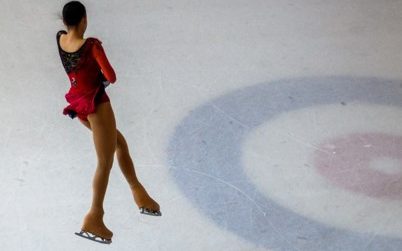
UEFA’s changes to their rules on arbitration and the appointment of Dublin as a seat for Court of Arbitration for Sport (CAS) hearings have significant repercussions for the area of Sports Law in Ireland.
Neal Horgan B.L. considers these developments and their implications.
Ireland as a New Seat for Sports Law – How Did We Get Here?
Football fans of a certain age will remember the contribution made by Scottish international footballer Gary McKay to Irish sporting history: on 11 November 1987, Mackay, making his international debut as a substitute, scored a late winner in a meaningless game for the Scots against Bulgaria in Sofia. That result put Jack Charlton’s Ireland team through to UEFA Euro ‘88. In the near future, Irish sports law practitioners may well come to revere in similar terms the names of Dutch ice speed skaters Mark Jan Hendrik Tuitert and Niels Kerstholt for indirectly influencing the appointment of Ireland as a new European seat for sports law.
International Skating Union -v- European Commission (C-124/21 P)
The background of this case involved the two Dutch skaters, Tuitert and Kerstholt, who challenged the decision of the International Skating Union (‘ISU’) and its refusal to sanction their participation in a skating competition in Dubai. On 3 June 2014, the two skaters, members of the Royal Netherlands Skating Federation (an organisation member of the ISU), submitted a complaint to the European Commission in which they claimed the prior authorisation and eligibility rules laid down by the ISU infringed Articles 101 and 102 of the Treaty of the Functioning of the European Union (‘TFEU’).
The Commission found the ‘object’ and ‘effect’ of the ISU’s prior authorisation and eligibility rules restricted competition in the relevant market, within the meaning of Article 101(1) TFEU, notably on the following grounds:
“…that an examination of the content of those rules, the economic and legal context of which they form a part, and the aims they pursue showed that those rules allowed the ISU, on the one hand, to prevent potential organisers of international speed skating events in competition with ISU events from entering that market and, on the other hand, to restrict the possibility for professional speed skaters to take part freely in such events and thus to deprive potential organisers of such events of the services of the athletes whose participation is necessary for such events to be held.” [1]
The arbitration rules required all skaters to agree to the terms of the ISU, which included submitting to the exclusive jurisdiction of the Court of Arbitration for Sport (‘CAS’) in respect of disputes, as a prerequisite to entering international skating competitions. The Commission held this rule reinforced the restriction of competition resulting from the prior authorisation and eligibility rules. [2]
Following this decision, the ISU brought an action to the European General Court seeking to annul the Commission’s ruling. On 16 December 2020, the General Court handed down its judgment upholding the Commission’s decision in so far as it related to the ISU’s prior authorisation and eligibility rules, however, the General Court found the decision was unlawful in so far as it related to its arbitration rules. [3]
The General Court’s decision in respect to the prior authorisation and eligibility rules was subsequently appealed by the ISU to the European Court of Justice (‘CJEU’). The two skaters, supported by the Commission, brought a cross-appeal to the CJEU wherein they claimed, inter alia, the General Court erred in law by finding the arbitration rules established by the ISU could not be regarded as reinforcing the infringement of Article 101(1) TFEU.
CJEU Ruling:
On 21 December 2023[4], the CJEU dismissed the ISU’s appeal concerning its prior authorisation and eligibility rules. Following the decisions of the Commission and General Court, the CJEU held the “object” of the ISU’s eligibility rules restricted competition in the relevant market, within the meaning of Article 101(1) TFEU.
In respect of the ISU arbitration rules, the skaters maintained, inter alia, that as CAS was an arbitration body established outside the European Union, with an appeal mechanism exclusively before the Tribunal Fédéral (Federal Supreme Court of Switzerland), any such review excluded a consideration of EU competition rules and reinforced the infringement of the authorisation and eligibility rules.
The CJEU noted authorisation decisions affect both organisations as well as the athletes wishing to participate in a proposed event and as such those matters concern EU competition law. The Court distinguished the circumstances from pure sporting questions which do not fall within the scope of EU law. As such, there should be effective judicial review of arbitral decisions reviewing such decisions so that:
“the court having jurisdiction to review the awards made by that body may confirm that those awards comply with Articles 101 and 102 TFEU.”[5]
According to the CJEU, the court concerned should satisfy:
“all the requirements under Article 267 TFEU, so that it is entitled, or, as the case may be required, to refer a question to the Court of Justice where it considers that a decision of the Court is necessary concerning a matter of EU law raised in a case pending before it.” [6]
For these reasons, the CJEU concurred with the European Commission and held the mandatory requirement to accept the jurisdiction of CAS reinforced the restriction of competition. The skaters cross-appeal was thus upheld and they were awarded the costs of the proceedings.

The result of the decision in ISU
Despite the recent ISU decision, the review of sports arbitration decisions has not been entirely settled. The ISU case did not look at whether the procedure to challenge the recognition or enforcement of an award on grounds of public policy before EU national courts (and thereby to seek a reference to the CJEU) is a sufficient safeguard of EU law rights. That issue may well be considered in future cases.
Suffice to say for now, the ISU ruling placed a question mark over recourse to CAS where appeal of its arbitral decisions is limited to the Swiss courts in cases concerning authorisation requests.
UEFA
Although not a party to the ISU case, UEFA were involved in two other prominent cases before the CJEU, with those decisions being delivered on the same day as the ISU case[7]. One of those decisions related to the ‘European Super League case’ which considered, inter alia, UEFA’s authorisation and eligibility rules. While there was no reference in that decision to UEFA’s rules concerning their exclusive and mandatory seat for disputes lying to CAS located in Switzerland, it appears UEFA were fully alive to the potential significance of the ISU decision in respect of their own arbitration rules.
In February 2024, the UEFA Congress approved amendments to its Statutes recognising the explicit recognition and enforcement of arbitral awards by CAS and its vulnerability to challenge on grounds of public policy. Those amendments came into force on 1 July 2024 and apply to all UEFA arbitral awards. UEFA had previously inserted a similar provision into its Authorisation Rules adopted in 2022.
On 21 June 2024, UEFA went one step further, adopting a change to their Authorisation rules to include the following provision:
“CAS shall primarily apply the UEFA Statutes, rules and regulations and subsidiarily Swiss law. The party filing the statement of appeal and/or a request for provisional in the measures, whichever is filed first with CAS, shall indicate in its first written submission to CAS whether the party accepts Lausanne, Switzerland, as seat of the arbitration or if the seat of arbitration shall be in Dublin, Ireland, in derogation of Article 28 of the CAS Code. In the latter case, UEFA is bound by the choice of Dublin, Ireland, as seat of the arbitration and UEFA shall confirm its agreement to such seat in its first written reply to CAS. In case no seat is indicated in the first written submission to CAS. Article R28 of the CAS Code shall apply.”[8]
(Author’s underlining)
As such, Dublin is now eligible to act as the seat of arbitration for disputes before CAS arising from UEFA’s Authorisation Rules.
Why Did UEFA Choose Dublin?
To date, UEFA have not set out the reasons why they chose Dublin as an alternative seat for their CAS disputes, however, there are a number of possible reasons that could be proffered including, but not limited to, the following:
Ireland’s Membership of the EU
The judgment in the ISU case in respect of the arbitration rules can be interpreted as meaning the review of certain CAS decisions concerning EU public policy (at this point, seemingly limited to authorisation and eligibility rules of federations) may need to take place in a national court of the EU rather that the Swiss Federal Court or a court outside the EU. As noted, this remains an open question but choosing Dublin as the arbitration seat resolves any potential issue on the point, in particular, for organisers or football clubs based in the EU. Therefore, the choice of Ireland as an alternative seat of arbitration would allow for a review in accordance with EU public policy before the High Court and, if required, a referral from the High Court to the CJEU for a preliminary ruling.
The English Language
The working languages of CAS are English, French and Spanish, with English being the most commonly used. Following the United Kingdom’s withdrawal from the European Union, Ireland is the leading country within the EU using English as a primary language and as an official language before EU institutions. Any reference to the CJEU must be held in an official language of the referring court – which in the case of a reference from Ireland means such proceedings before CJEU can take place in English. From a practical perspective, the use of the English language may have been a significant factor in UEFA’s decision to choose Ireland.
The Common Law
It is possible that UEFA was interested in having its disputes dealt with by a common law system where a robust judicial review process applicable to arbitral awards exists as an alternative to the civil law system where some courts have tended to ‘pass on’ cases to the CJEU (e.g. in the Royal Antwerp case, the Belgian courts referred questions relating to UEFA’s home grown player rules even though UEFA was not a party to the original arbitration). [9]
Legal Expertise and Arbitration Infrastructure
Ireland enjoys an excellent reputation for dealing with complex legal issues, alongside its particularly robust and internationally utilised arbitration system. Ireland boasts a wealth of experienced legal and expert practitioners.
Neutrality and Location
Irish neutrality and accessibility (in terms of its geographical location and its strong international transport links) are definite pull factors for international dispute resolution. This makes Ireland an attractive location to establish a seat for an alternative dispute resolution court in the context of sporting disputes of an international nature, in particular where sensitive issues are at stake.
What does this all mean?
UEFA’s decision to assign Dublin as an alternative arbitration seat to CAS hearings is limited to disputes arising from UEFA’s Authorisation Rules only and does not include its disciplinary disputes.
In the event a party seeks to challenge UEFA’s Authorisation rules through CAS, they may choose to commence arbitration proceedings in Dublin when filing the initial documents to UEFA.
In practical terms, if a party chooses Dublin, then that seat for CAS in Dublin may be, in some respects, merely a nominal seat. Written submissions will be filed with CAS in the ordinary manner. If matters progress to a hearing, it may still take place at the CAS building in Lausanne, Switzerland. However, if a party to that CAS decision subsequently seeks to set aside the decision, the review would be taken before the Irish High Court applying Irish law with Irish qualified lawyers and of course with the potential of referral to the CJEU of a question relating to EU public policy.
While, in one sense, this appears to be a limited opening, the potential for further developments in this new and exciting sphere may be significant when one considers that UEFA are currently hardened from the challenge to their authorisation rules in respect of the ‘European Super League case’ and have, with the type of focus that such battles can bring, decided to act with real expediency to make Dublin an alternative CAS seat for its disputes following the ISU ruling by the CJEU.
It is very possible that other federations – perhaps viewing possible future challenges to their own respective Authorisation rules – may follow UEFA’s lead. There is some precedence for UEFA being a leader in this realm given the subsequent adoption by many sporting federations of financial fair play requirements and home-grown players rules after implementation of same by UEFA in respect of European football.
Even if other sporting federations do not follow suit, it is also possible that UEFA could designate Dublin as a second seat for their CAS hearings dealing with disciplinary matters, an area that involves a very high number of cases each year. Nonetheless, practitioners should take note of a potential growth area in this jurisdiction.
[1] International Skating Union -v- European Commission, Case C-124/21 P para. 29.
[2] European Commission Decision (2017) 8240 final – para’s 268-286
[3] Judgment Of The General Court (Fourth Chamber, Extended Composition) 16 December 2020, International Skating Union -v- European Commissions, T‑93/18
[4] For an excellent summary of the ISU -v- Commission case, see ‘Skating on Thin Ice’ by Marc Alexander Curran, The Bar Review, Volume 29, Number 3, 2024.
[5] Case C-124/21 P para. 198
[6] Case C-124/21 P para. 198
[7] European Superleague Company SL v Fédération internationale de football association (FIFA), Union of European Football Associations (UEFA), C-333/21 and SA Royal Antwerp Football Club v Union royale belge des sociétés de football association ASBL (URBSFA), C-680/21
[8] UEFA Authorisation Rules governing International Club Competitions – 2024 Edition 2024, Article 16.3.
[9] As a result, UEFA joined the case as an intervener after the reference had already been made. See paras 27 – 30 of the Royal Antwerp FC judgment- SA Royal Antwerp Football Club v Union royale belge des sociétés de football association ASBL (URBSFA), C-680/21.
The views expressed above are the author’s own and do not reflect the views of The Bar of Ireland.
